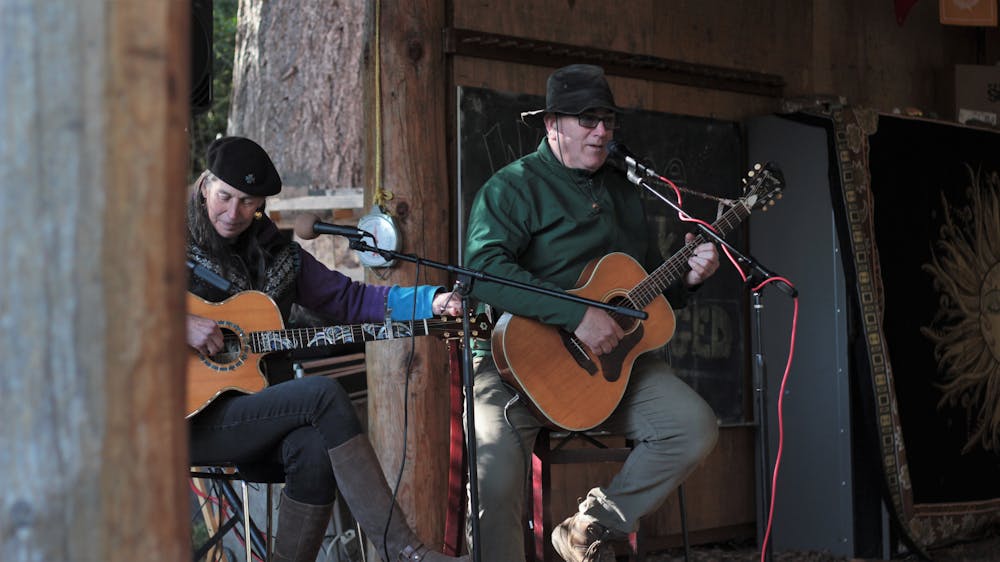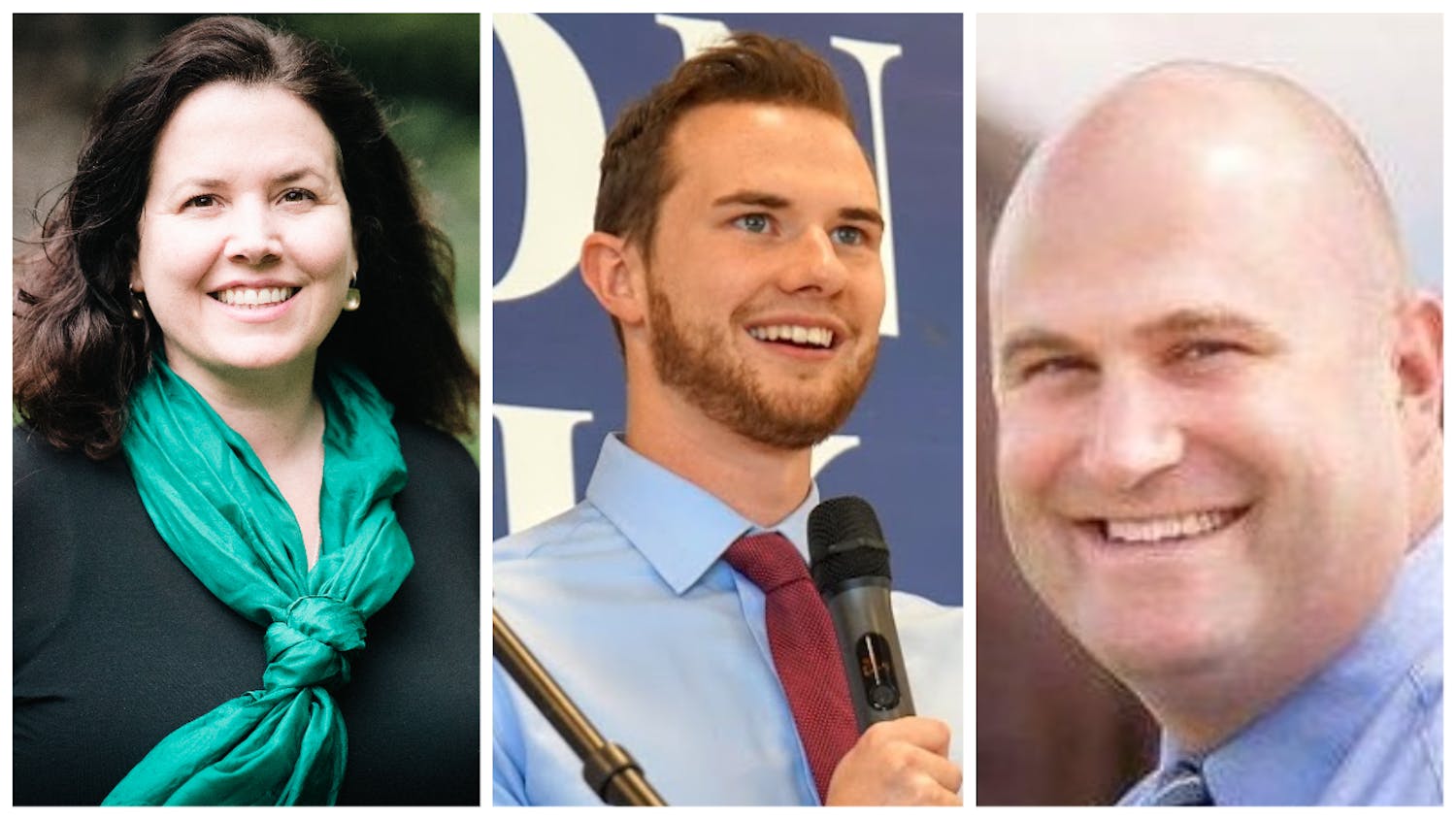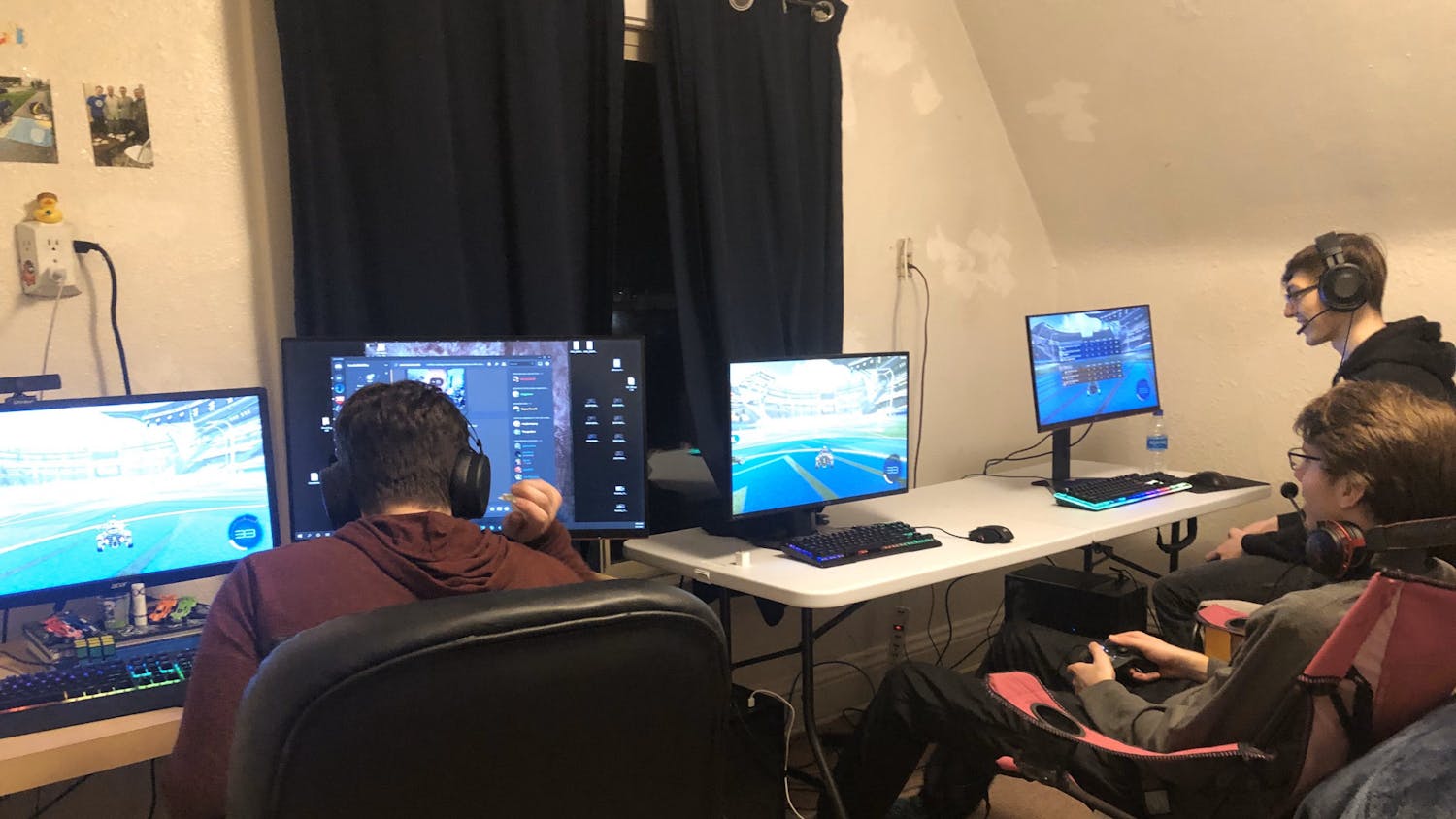The Outback Farm hosted Outback Unplugged on April 19, one of several Earth Week events happening on Western Washington University’s campus.
Students could enjoy pizza and salad while listening to live music and stories about the early days of the Outback Farm from alumni of Fairhaven College. The event highlighted the importance of The Outback in light of possible budget cuts that could affect the farm.
The Outback gets its funding from several places - Fairhaven College, Associated Students and grants. The farm’s status as a learning center helps give it some protection - it can’t be bulldozed over.
Funding in the past has come from a Sustainability, Equity, and Justice Fund grant.
“SEJF is not built to do permanent funding - it is for temporary funding,” said Natalie Harris, the Environmental Justice Program coordinator who helped organize Outback Unplugged. “So SEJF says, “We can't fund you anymore,” the AS has to tighten their budget and then there's a new provost in the College of Environment who is making budget cuts.”
“It just seems like doom and gloom anywhere I look,” Harris said.
The farm is a valuable resource for many at Western.
“The Outback is one of the first things that intrigued me about Western, and every time I’m out here I feel really excited to be a Western student,” said Harris, who graduates in June. “I think that sounds kind of cheesy, but I just love it here.”
David Donohue, alumni s of Fairhaven College and one of the evening’s performers, emphasized the importance of the farm.
“The thing about Outback is that over the years the layers have laid in. It is built on the accomplishments of those who have come before in a way that is really remarkable,” Donohue said. “I’ve always supported Outback and I’ve really enjoyed watching how it evolved and turned into a much more evolved and viable learning environment.”
More than 500 students at Western said they have gone hungry due to finances, according to one survey conducted by students at Fairhaven College. The Outback is not just a place to relax; it empowers students to grow their own produce and fight food insecurity.
“I think that especially now in times of climate change, it is especially important to teach resilience in local communities and food security,” said Western student Natalie Kearce, who attended Outback Unplugged. “I think if we don't have a space for that, [Western is] kind of expressing that they don't care about food security and local communities.”
“That's definitely not sending a good message to young people who have probably experienced food insecurity at some point in their lives, especially with COVID,” Kearce said.
The Outback is holding spring work parties every Tuesday from 1 to 3 p.m. and every Friday from 2 to 4 p.m. No tools or previous experience is needed.
Ava Glaspell (she/her) is a campus news reporter for The Front this quarter. She is a first year journalism/news ed major. Outside of reporting, Ava enjoys climbing, eating ice cream, and jumping into the ocean. You can reach her at avaglaspell.thefront@gmail.com.






